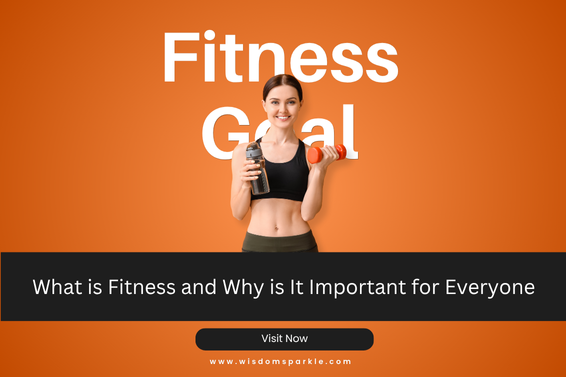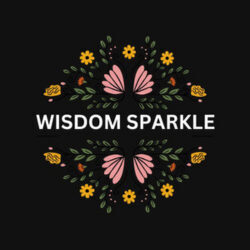
In today’s fast-paced world, where everyone is constantly busy juggling work, responsibilities, family, and the endless scroll of social media, one important thing often gets pushed to the bottom of the list—fitness. We tell ourselves, “I’ll start next week,” or “I don’t have time right now,” but deep down, we know our body is asking for attention.
But what does fitness really mean? Is it only about building six-pack abs or spending hours in the gym? Is it only for athletes or people trying to lose weight? Absolutely not.
It’s not about how you look in the mirror, but how you feel inside that truly defines fitness. It’s the energy you carry throughout your day, the strength in your steps, the calmness in your mind, and the ability to do simple things without feeling tired. Whether it’s climbing stairs without losing breath, playing with your kids, or sleeping peacefully at night—that’s fitness.
Fitness means living a life where your body supports you, not slows you down. It’s about creating a balance between your mind, body, and emotions—so you feel your best, inside and out.
In this blog, we’re going to keep things real and simple. Let’s talk about what fitness truly means, why it matters for everyone—young or old, busy or free—and how you can slowly but surely bring it into your daily life, without pressure or stress. Because being fit isn’t a one-time goal. It’s a lifelong gift you give to yourself.?
What is Fitness?
Fitness means keeping both your body and mind healthy, active, and strong. It’s the ability of your body to handle everyday tasks with energy and without feeling too tired. It’s also about your heart, lungs, muscles, bones, and mind working well together.
- Fitness isn’t about being thin or fitting into a certain size. It’s about:
- Having energy throughout the day
- Sleeping better at night
- Feeling good inside and out
- Staying active without getting tired quickly
In short, fitness is your body’s natural power to live life to the fullest.
The 5 Main Components of Fitness
To understand fitness better, let’s look at its main parts:
1. Cardiovascular Endurance
This is how well your heart and lungs work when you run, walk, swim, or cycle. It helps you stay active without gasping for breath.
2. Muscle Strength
This is how strong your muscles are. You need muscle strength for lifting, carrying, and even sitting with a good posture.
3. Muscle Endurance
This means how long your muscles can keep working without getting tired. For example, climbing stairs or doing multiple squats needs muscle endurance.
4. Flexibility
Flexibility helps your joints move freely. It reduces stiffness and prevents injuries. Simple stretches every day help a lot.
5. Body Composition
This is the ratio of fat to muscle in your body. A healthy balance means less risk of diseases and more energy.
Why is Fitness Important for Everyone?
No matter how old you are, what your body looks like, or how busy your life is—fitness is for everyone. It’s not only for people who go to the gym or play sports. Let’s explore why staying fit is important for every human being.
1. Boosts Mental Health
When you exercise, your body naturally releases happy hormones known as endorphins, which help lift your mood and make you feel good. These natural mood boosters help lower stress, ease anxiety, and fight off feelings of sadness. Even a short 20-minute walk can brighten your mood and make you feel better.
2. Strengthens Your Heart
A healthy heart means better blood flow, less risk of heart disease, and more energy to do what you love.
3. Improves Digestion & Metabolism
When your body is active, your digestion gets better, and your metabolism becomes stronger—helping you maintain a healthy weight naturally.
4. Better Sleep Quality
Exercising regularly helps you sleep better at night and wake up feeling refreshed and full of energy. You’ll notice the difference within a few days.
5. Reduces Risk of Chronic Diseases
Fitness lowers the chances of diabetes, high blood pressure, obesity, and even some types of cancer.
6. Supports Healthy Aging
Staying active keeps your bones strong and joints flexible. It helps you age gracefully and keeps you independent in later years.
7. Improves Confidence & Body Image
You’ll feel more confident when your body moves freely and feels good. It’s not about looking perfect—it’s about feeling proud of your body.
Common Myths About Fitness
Let’s clear up some common fitness myths that often confuse people:
“Many people think they need a gym to be fit, but that’s not true—your home and body are enough to start.”
Not at all. You can stay fit right at home with simple bodyweight exercises, daily walks, or calming yoga—no gym required.
“Fitness means being thin.”
Not at all. Thin doesn’t always mean healthy. Fitness is about strength, stamina, and energy.
“I’m too old to start exercising.”
You’re never too old. Even gentle activities like walking, stretching, or swimming help a lot.
“I don’t have time.”
Just 20–30 minutes a day is enough. Break it into small parts if needed—each little effort matters.
Simple Tips to Begin Your Fitness Routine
Starting your fitness journey doesn’t need to be hard. You don’t have to do much—just begin with these easy steps.
1. Start Small
Don’t jump into intense workouts. Begin with 15–20 minutes of walking or light stretching.
2. Pick Activities You Enjoy
Whether it’s dancing, cycling, yoga, or playing a sport—choose what makes you happy.
3. Make It a Daily Habit
Be consistent. Even just 5 to 10 minutes of movement each day can make a big difference. Try to include some form of activity in your daily routine—it all adds up.
4. Eat Balanced Meals
Fitness is not just exercise. Eat fruits, veggies, whole grains, and protein-rich food to fuel your body.
5. Stay Hydrated
Drink enough water daily. Your body needs it to stay active and refreshed.
6. Get Enough Rest
Rest days are important. They help your muscles recover and grow stronger.
Fitness for Different Age Groups
Kids
Fitness for children means playtime, running, jumping, and being outdoors. It helps the body grow and keeps the mind active and focused.
Adults
For working adults, fitness helps balance stress, manage weight, and stay energized throughout the day.
Seniors
Older adults benefit from light workouts like walking, yoga, or stretching. It supports mobility and reduces joint pain.
Simple Home Exercises You Can Try (No Equipment Needed!)
You don’t need a high-end gym or costly equipment to begin your fitness journey. Your body is your best workout tool—and your home is the perfect space to begin.
Here’s a simple home workout routine that’s perfect for beginners. It doesn’t take more than 15–20 minutes, and you can do it in your bedroom, living room, or even on your terrace. No excuses—just movement!
1. Jumping Jacks – 1 Minute
This is a great warm-up exercise. It gets your heart beating faster, warms up your muscles, and helps your blood flow smoothly throughout your body.
Tip: Don’t rush. Start slow and pick up the pace. Breathe in and out steadily.
2. Wall Sit – 30 Seconds
Lean against a wall and slide down like you’re sitting on an invisible chair. This exercise helps make your thighs and hips stronger, and also builds stamina.
Tip: Keep your back flat against the wall and bend your knees so they form a right angle (like sitting on a chair). If 30 seconds feels too long, start with 15 and build up.
3. Push-Ups (Try on Knees if Needed) – Do 10 Repetitions
Push-ups are a simple yet powerful exercise that helps strengthen your arms, shoulders, chest, and core muscles all at once.
Tip: If you can’t do a full push-up, drop your knees to the floor. Keep your body in a straight line and go as low as you’re comfortable.
4. Bodyweight Squats – 15 Reps
Squats are great for strengthening your legs, hips, and lower back. They also help with balance and flexibility.
Tip: Keep your feet shoulder-width apart, back straight, and bend your knees like you’re sitting on a chair. Don’t rush.
5. Leg Raises – 10 Reps (Each Leg)
Lie down on your back and slowly lift your legs up, then lower them back down with control. This strengthens your core and lower abdominal muscles.
Tip: Keep your hands under your hips for support. Don’t let your feet touch the floor between reps for a better burn.
6. Child’s Pose (Stretch) – 1 Minute
End your workout with this gentle yoga stretch. It relaxes your spine, shoulders, and hips. Great for calming the mind too.
Tip: Breathe slowly. Let your body sink into the pose. If you can, stay here longer.
Repeat This Routine 2–3 Times
Take 30–60 seconds of rest between rounds. Listen to your body. If you’re a beginner, even one round is a great start. Over time, you can increase the sets and even add music to make it more fun!
Bonus Tips:
- Turn it into a daily routine by choosing a regular time—either in the morning or evening that works best for you.
- Workout with a friend or family member: It keeps you motivated.
- Track your progress: Even writing “Day 1 ✅” in a notebook can boost your confidence.
Remember, movement is medicine. These small steps at home are not just exercises—they’re a promise you’re making to yourself. A promise to stay strong, active, and healthy—no matter where you are.
Final Thoughts
Fitness is not about perfection—it’s about progress. It’s not about comparing your journey with others or chasing unrealistic goals. It’s about showing up for yourself, every day, in small ways. It’s about choosing to move your body, nourish it with good food, rest when needed, and speak kindly to yourself.
You don’t have to lift heavy weights, run for miles, or follow strict diets to be fit. You just need to start—even if it’s with five minutes of stretching, a short walk after dinner, or replacing that sugary drink with a glass of water. Small steps lead to big changes.
Fitness is deeply personal. Fitness looks different for everyone—and that’s perfectly okay. What matters is how you feel, how your body responds, and how your mind stays balanced and calm. Some days will feel smoother than others, and that’s completely fine. Progress isn’t always big or visible—sometimes, it’s just about showing up and not quitting.
Remember, your body is your forever home. You live in it every single moment. Treat it with love, care, and patience. When you nurture it, it will support you in ways you never imagined. It will let you dance, laugh, hug your loved ones, travel, play, and truly enjoy life.
Fitness is a gift—one that keeps giving back, not just in years added to your life, but in life added to your years. A fit body moves with ease. A fit mind handles stress better. A healthy heart is full of energy, happiness, and calm.
So why wait? Start today. Not next week, not after your schedule clears up—now. Take a short walk. Breathe deeply. Do a few gentle stretches. Eat something fresh and wholesome. Go to bed early. Smile. Be kind to yourself. Each small step brings you closer to a healthier, happier life.
You don’t need to be perfect. You just need to begin.







